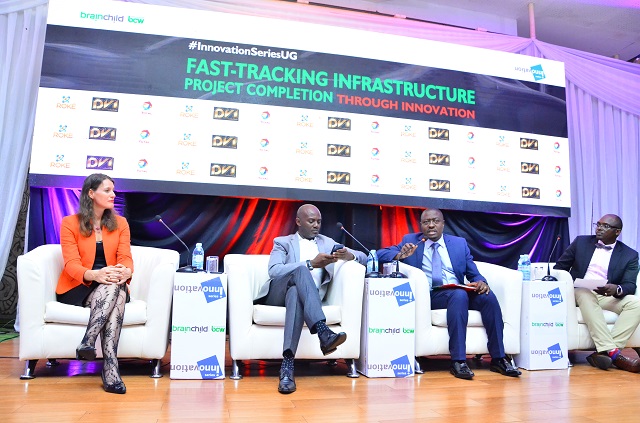
Kampala, Uganda | Julius Businge | Timely completion of infrastructure projects is a key ingredient to economic growth. It should be prioritized. This was a shared view at the recently held ‘Innovation Series’, a thought leadership forum organized by Brainchild Burson Cohn & Wolfe (BCW) at the Golf Course Hotel in Kampala.
Experts at the forum urged the government and its partners to be more innovative to accelerate timely delivery of planned infrastructure and services to Ugandans in a bid to promote social and economic growth.
The Acting Executive Director for Kampala Capital City Authority (KCCA) Eng. Andrew Kitaka said that Innovation in the infrastructure sector is no longer a need but a strategic necessity because it is a key catalyst for growth and development as well as a driver for better and sustainable business performance that leads to industry leadership.
Kitaka said that young people should develop applications that will help in solving the traffic challenges in Kampala and the country at large.
Andrew M. Mwenda, the founder and strategy and editorial director at The Independent Publications Limited, publishers of the weekly political and business magazine, proposed that KCCA should think of introducing a congestion charge to reduce traffic congestion.
Mwenda argued that the levy would provide funds that the city authority would use to invest in infrastructure that is badly needed by city-goers. He also suggested there should be construction of satellite cities outside Kampala in addition to building ferries for water transport, all aimed at reducing congestion in the city of Kampala.
According to a global study by auditing firm KPMG, modern operational technologies in infrastructural development include; the use of; Artificial Intelligence, Internet of Things (IoT), Drones, Virtual Reality and Smart Sensors.
These technologies can be used to aid the feasibility, planning, implementation, piloting and monitoring of the construction works in the country.
Walter Wafula, the Business Unit Head-PR at Brainchild BCW, said the theme for the event ‘Fast-Tracking Infrastructure Project Completion through Innovation’ was based on its timeliness for the sector, given the significant level of investment the government of Uganda is making Citing the World Bank, Wafula said recurrent delays in infrastructure project completion and delivery costs both the government and citizens over Shs2.8 trillion in terms of GDP.
 The Independent Uganda: You get the Truth we Pay the Price
The Independent Uganda: You get the Truth we Pay the Price



